
The Italian Navy is one of the four branches of Italian Armed Forces and was formed in 1946 from what remained of the Regia Marina after World War II. As of August 2014, the Italian Navy had a strength of 30,923 active personnel, with approximately 184 vessels in service, including minor auxiliary vessels. It is considered a multiregional and a blue-water navy.

"Suona la tromba" or Inno popolare is a secular hymn composed by Giuseppe Verdi in 1848 to a text by the Italian poet and patriot Goffredo Mameli. The work's title comes from the opening line of Mameli's poem. It has sometimes been referred to as "Grido di guerra".

Giuseppe Saverio Poli was an Italian physicist, biologist and natural historian.

Luciano Catenacci was an Italian actor and production manager who worked on mainly Italian produced films during the 1960s, 1970s and 1980s.

Andrea Petagna is an Italian professional footballer who plays as a striker for Serie A club Monza. He has also previously represented the Italy national team.

Alessandro Casati was an Italian academic, commentator and politician. He served as a senator between 1923 and 1924 and again between 1948 and 1953. He also held ministerial office, most recently as Minister of War for slightly more than twelve months during 1944/45, serving under "Presidente del Consiglio" Bonomi.
Marco Mattiucci was a member of the Italian National Fire Department, and a recipient of the gold medal for civil valor.
Valerio Gildoni was an Italian military officer, colonel of the Carabinieri and a recipient of the gold medal of military valor.
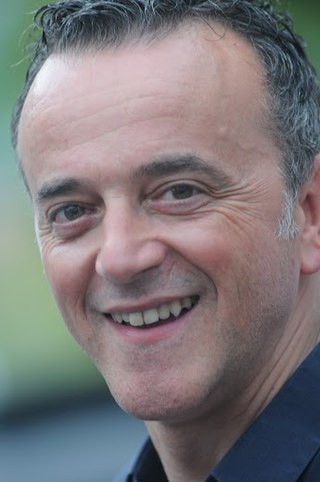
Antonio De Crescentiis is an Italian politician who served as President of the Province of L'Aquila.

Monte Cianea is a 1,226-metre (4,022 ft) mountain of the Ligurian Prealps, in Italy.
The Italian Generals of the Great War, C-Z is an essay published by historians Paolo Gaspari, Paolo Pozzato and Ferdinando Scala in 2019, with an introduction by historian Filippo Cappellano and published in collaboration with the History Office of the Italian Army. It is the second volume of an encyclopedic series dedicated to the biographies of over six hundred Italian general officers who fought in the Great War on the Italian front and abroad, and concludes the work begun in 2011 with the publication of The Italian Generals of the Great War, A-B.

Armando Tallarigo, Baron of Zagarise and Sersale was an Italian soldier and politician.

Mario Ajmone Cat was an Italian Air Force general during World War II. He was Chief of Staff of the Italian Air Force from 1944 to 1951.
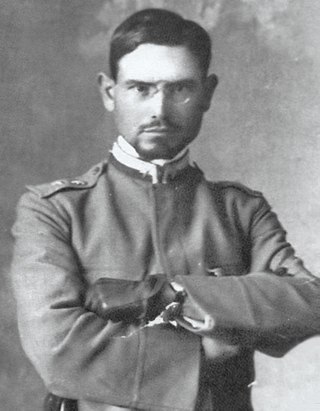
One Year on the High Plateau is a historical novel by Emilio Lussu: set on the Asiago plateau, it is one of the major works of Italian literature on the First World War. The novel was written between 1936 and 1937 and tells, for the first time in Italian literature, the irrationality and senselessness of war, hierarchy and exasperated military discipline in use at the time. For a long time considered a faithful chronicle of the events dating back to the period spent by Lussu as an officer of the Sassari Brigade, it has subsequently been the subject of a substantial historiographic criticism, which has strongly reduced the value of the chronicle of real events, leading it to the role of historical novel.
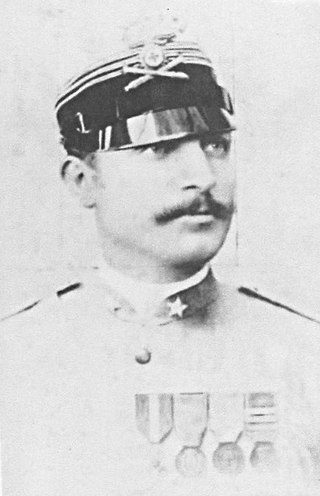
Edoardo Bianchini was an Italian captain of the First Italo-Ethiopian War. He commanded the 3rd Mountain Artillery Battery during the Battle of Adwa before being killed at the battle. He was also a posthumous recipient of the Gold Medal of Military Valor for his service at the battle.
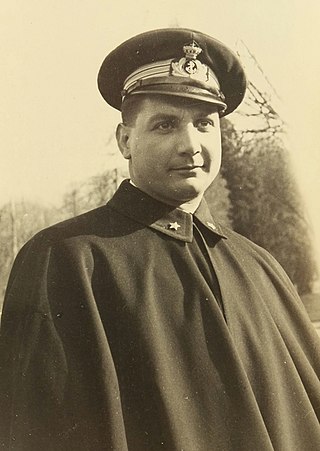
Alfeo Brandimarte was an Italian naval officer and Resistance member during World War II.

Ferdinando Beneventano del Bosco was a Two Sicilian Brigadier General of the Army of the Two Sicilies. He was one of the few charismatic figures during the Expedition of the Thousand and a primary figure of Two Sicilian resistance against the Sardinian forces.
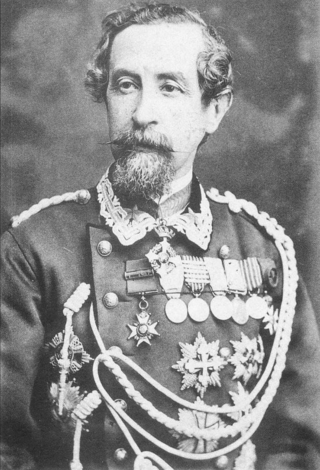
Count Genova Giovanni Battista Thaon di Revel was an Italian nobleman, soldier, politician, diplomat and historian. He took part in the Risorgimento campaigns and the Crimean War. He carried out several diplomatic missions for the Sardinian government. He was also minister of war and a senator of the Kingdom of Italy.
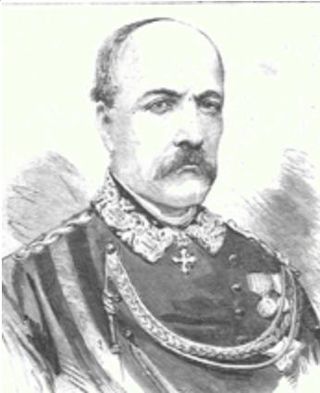
Luigi Mezzacapo was an Italian general, patriot and politician.
















